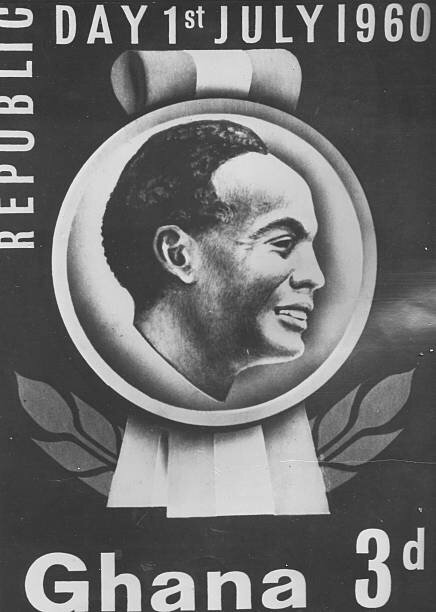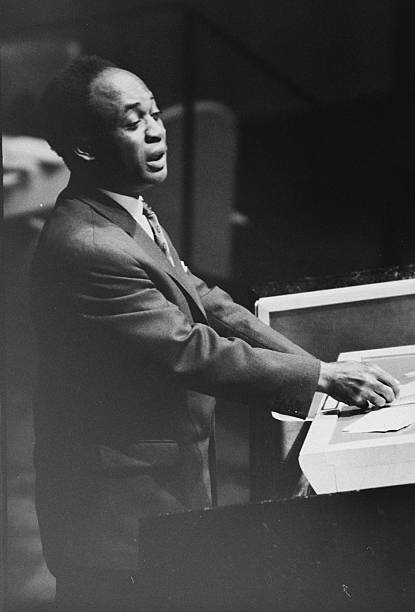Today in History, exactly 60 years ago, on 1 July 1960, Kwame Nkrumah became Ghana’s first president and Ghana officially became a Republic.

On March 6, 1957 Ghana emerged the first African nation south of the Sahara to become independent from colonial rule. Osagyefo Dr Kwame Nkrumah, whose CPP had won a convincing victory in the 1956 general election, became the first Prime Minister and Dr K.A. Busia emerged leader of the opposition.
The governor was the representative of the Queen as Head of State, with essentially ceremonial functions while Dr Kwame Nkrumah was Head of Government, vested with the Executive power of the State. Ghana was a member of the Commonwealth of nations and was exerting itself in the global family of nations.
Three years after gaining political independence on 1 July 1960. Ghana became a Republic. On this day the then Prime Minister, Kwame Nkrumah was sworn into office, becoming Ghana’s first president.

However, in 1966 Kwame Nkrumah was overthrown by a military coup led by Kotoka and the 1st Republic ended.
In Ghana, we have had the First Republic, Second Republic, Third Republic and Fourth. Each one had its own Constitution which was different. There is no single continuum in any of the Constitutions. Each was an era of its own. When constitutional rule was restored after each military intervention a new constitution was established.
The 1960 Constitution was never restored. Indeed, it was repudiated in 1969. The former did not provide fundamental human rights, while the latter was a charter of liberty.
1 July was observed as a public holiday and all citizens were advised to reflect on the political strides made by the country. This holiday commemorated Ghana becoming a republic on 1 July 1960.

The Republic Day of July 1 is no longer a public holiday following President Nana Addo Dankwa Akufo-Addo’s assent to the Public Holidays (Amendment) Act 2019, Republic Day becomes just commemorative day.
Republic day has also become Senior Citizens’ Day, a day to recognize the efforts and contributions of senior citizens to modern Ghana.